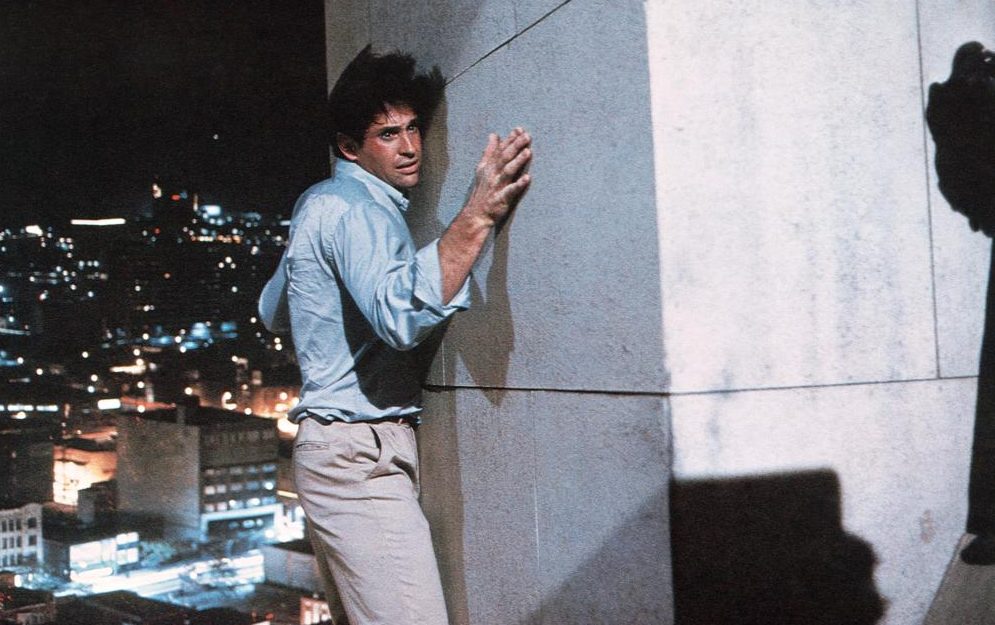
There is a common rule in storytelling that says “arrive late, leave early”. The idea is that you shouldn’t start your story at the beginning, because that is boring. Start where the action picks up and fill your audience in later. Same goes for the ending. Don’t draw your story out too long. End on a high note. It’s a good rule that Stephen King completely ignores. It’s one of his greatest strengths.
King is a master storyteller who is not afraid to wander into the details. In a King novel, you meet the characters very early and you usually leave them fairly late. This is normally a faux pas, but King understands how to break rules. His stories are a journey and it would be unfortunate to get there late or to leave too early.
Cat’s Eye (meow)
A perfect example of King leaving late comes from his short story The Ledge, adapted to film in Cat’s Eye. In the story, a man is forced to traverse a ledge around an apartment building without falling. He must overcome various obstacles and attacks from his captor. The man succeeds, only to find out it was all for naught. The man is able to flip the tables on his captor and force the other man to perform the same feat.
It is interesting to compare the novel version to the film version of The Ledge. The film version is actually a better example of “leave late” which is more typical of Stephen King. In the short story, you have a classic “leave early” ending, wherein the main character insinuates the final fate of the antagonist, but we never see it happen. In the film version, we very clearly see the antagonist travel around the ledge of the building and eventually fall to his death. I don’t know if Stephen King had any say in the film version, but I oddly feel that is a more typical King ending.
You see, Stephen King lives in the details and that is how he brings his characters to life. The details arrive early and leave late. As much as I love King’s plots, his character work is his strength. I kept reading The Dark Tower novels when the story wandered because I was so invested in the characters. Stephen King takes the time to delve into the lives of his characters.
“Yeah, but the ending sucked!”
One common criticism of King is that his endings aren’t the greatest, which I think stems from his breaking of the “arrive late, leave early” norm. Ambiguous endings are easy. Anyone can leave something up to the reader to interpret. How many indie dramedy films have you watched that end abruptly? It’s unsatisfying. Stephen King dares to give you a complete ending every time. It’s a gamble that doesn’t always pay off, but you know what you’re signing up for. And when it does pay off, it is immensely satisfying.
I have read mammoth tomes of books with a lot of waste. When I pick up a thousand page Stephen King book, I can’t wait to get into the details. Those extra few hundred pages bring the characters to life. You get to see them come upon a story, not in the middle of it. And you get to see a complete resolution and oftentimes beyond. Stephen King builds a world for you to read and get lost in. Hell, I cared more about Sadie than JFK in 11/22/63 because we spent so much time together.
To break the rules you must first know the rules. Stephen King knows what he is doing. I’m so glad he does, because we get to reap the benefits.